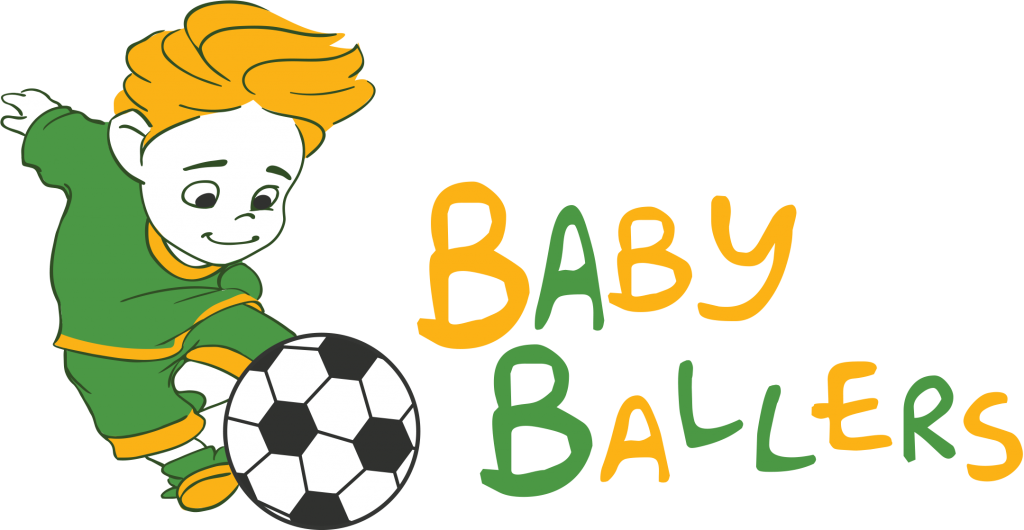Here at BabyBallers, we live by the motto learn through play. Our classes incorporate various learning techniques with different fun games and activities. Our goal? To create an environment where every kick, every laugh, and every tiny victory paves the way for a lifetime of growth.
Our classes will help your child score their first goal while developing essential life skills – that’s what we’re passionate about! Our dynamic football and child development classes are designed for both princesses and superheroes aged 16 months to 5 years all whilst using the idea of learning through play which is adapted to suit the age group.
Learning through play seems to be a simple concept, however, it has great benefits for children.
As children begin to learn, play serves as a dynamic and immersive fun way to discover new things that go beyond regular learning. It is a powerful trigger for cognitive, emotional, and social growth, fostering a holistic approach to learning that extends far beyond the confines of a classroom. The significance of play has been explored by psychologists and scientists for more than a century.

Learn through play activities
There are so many learn-through-play activities and we incorporate a lot of them in our BabyBallers classes. Learning through play activities is a fantastic and enjoyable way for individuals, especially children, to pick up new skills and knowledge.
These activities include playing games, doing hands-on things, and being creative. Whether it’s building things, games to learn new football skills, or playing interactive games, these activities help with thinking and understanding. By incorporating educational concepts into enjoyable play, individuals are more likely to remember and understand the information. Learning through play activities provides a dynamic and effective approach to education, making the journey of acquiring knowledge a lively and memorable experience.
Advantages of learning through play
There are so many advantages of learning through play. When kids play, they learn important skills such as problem-solving, critical thinking, and creativity, in a natural and enjoyable setting. But it’s not just about academic things. It also encourages collaboration, communication, and conflict resolution. Playing also makes kids feel good inside by helping them handle their feelings, be strong when things are tough, and feel good about themselves. And guess what? When kids play, they get how things work and remember them better. The advantages of learning through play extend far beyond the surface, contributing to holistic development in a manner that is both enriching and fun.


Learning through play theorists
In exploring the realm of learning through play, experts and theorists play a crucial role in unravelling its intricacies. These thought leaders delve into the subject armed with factual information, breaking down complex ideas into a language that’s easy for everyone to understand. Their insights provide valuable perspectives on the profound impact of play in the process of learning and development. While their approach is accessible, the content maintains a professional standard, ensuring that the discussion is grounded in credible research and expert opinions.
Jean Piaget
Jean Piaget was the first psychologist to make a systematic study of children’s cognitive development.
Piaget’s theory of cognitive development viewed play as important to the development of intelligence in children. Piaget divided play into three types of “play behaviour” – practice play, symbolic play, and play-with-rules. His theory of play argues that as the child matures, their environment and play should encourage further cognitive and language development.
“In play, a child is always above his average age, above his daily behaviour, in play, it’s as though he were a head taller than himself.” (Lev Vygotsky 1978).
Mildred Parten
Another learning through play theorist is Mildred Parten’s theory describes the ways children interact with each other and breaks it down into 4 stages.
The first up is solitary independent play. In this stage children play alone with objects without interacting with others even when they are near.
Parallel activity is next, with children playing side by side with similar toys – next to each other, but not with each other.
In associative play, children play with each other, but there is no particular goal or organisation to their play.
Cooperative play is the final type of play. In this stage, children cooperate with others to create play situations, with each child in the group playing an assigned role. Parents and early childhood teachers see mostly parallel and associative play with their toddlers although cooperative play emerges for most children by the end of this period.
Lev Vygotsky
Vygotsky’s sociocultural theory says that children socially construct what they know by using language. Vygotsky is known for the idea of the zone of proximal development (ZPD), which is the range of tasks a child can do with help but cannot do on their own. Play, particularly make-believe play, creates a ZPD as the child plays.
Overall, learning through play is an important part of a child’s education and doing this within a fun environment that they look forward to week after week can play a huge part in advancing their learning.
We’re here to introduce your kids to the world of sports in a playfully structured setting. From dribbling to striking, goal scoring, and more, we’ll cover the basics of football with a whole lot of fun thrown in.
Our classes not only offer an amazing way for your child to stay active but also provide a great opportunity to be part of their early education journey. Watch them grow physically while boosting their cognitive and social skills.
You can find your nearest BabyBallers class here.

